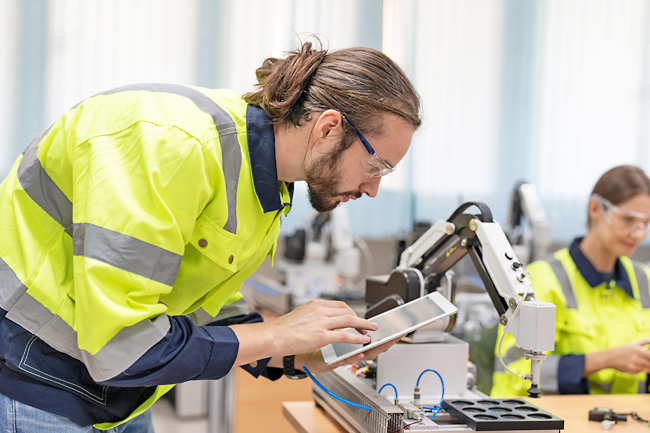AFP – There is widespread speculation regarding the impact of automation on the labour landscape.
While the incorporation of robots holds the promise of increased productivity for businesses, recent research from Germany indicates that autonomous machines may not necessarily enhance human efficiency. In fact, the opposite effect could occur.
A trio of researchers from the Technical University of Berlin devised an experiment to determine whether workers put in less effort if they think their individual contribution will be overshadowed by that of a robot.
To do this, they asked 42 volunteers to examine images of electronic circuits for potential errors. They warned them that a computer would be monitoring their work.
In addition, participants in the study, published in Frontiers In Robotics And AI, were divided into two groups.
Members of the first group were asked to look at circuits that had already been inspected by a robot. The others were told that they would be solely responsible for checking the quality of the circuits.

This experimental protocol demonstrated that volunteers working in collaboration with a machine were less conscientious than others. Indeed, they tended to detect, on average, 3.3 errors per image, compared with 4.2 for their colleagues working independently.
These results suggest that members of the first group observed the electronic circuits less carefully than those in the other group.
That’s why scientists believe it’s important to “understand and predict” the consequences that the introduction of robots into the workplace could have on human teams. Human-machine interactions can facilitate the execution of certain tasks that can be readily automated, thereby helping to increase productivity and, consequently, the economic growth of companies.
But this can also lead to a loss of motivation on the part of human workers, who may feel surpassed or overshadowed by the technology. The same phenomenon can be observed in “100 per cent human” teams, and is known as social loafing.
This concept, theorised by French agricultural engineer Maximilien Ringelmann, defines how individuals tend to reduce the effort they put into a group effort, in proportion to the size of the group. In other words, the more people come together to work on a project, the less effort they’re likely to put in.
This study shows, for the first time, that social loitering can also apply to human-robot interactions. More research is needed to understand the effects and limitations of this phenomenon in the use of artificial intelligence in the world of work.



















































